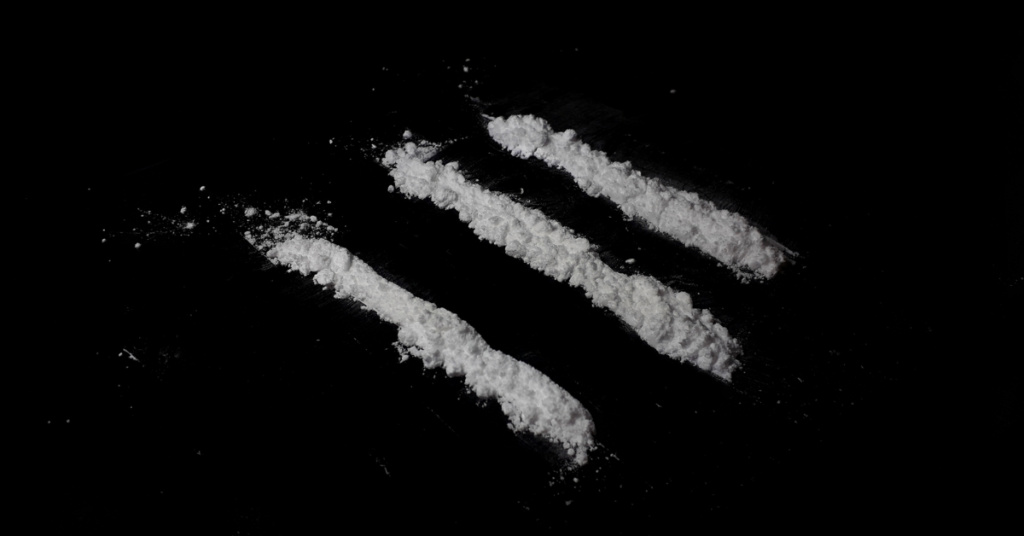
The Danger of Fentanyl in Cocaine
Legacy Healing Center Blog
The opioid crisis in America is a severe public health emergency that has led to widespread addiction, overdoses, and fatalities. Originating from the over-prescription of opioid painkillers in the late 1990s, the crisis has escalated with the rise of illicit opioids like heroin and synthetic fentanyl. This epidemic has overwhelmed healthcare systems, strained public resources, and devastated communities across the nation. Efforts to combat the crisis include increased access to treatment, stricter regulations on prescription opioids, and widespread distribution of naloxone to reverse overdoses. However, the battle against opioid addiction continues to be a significant challenge.

At Legacy Healing Center, our mission is to educate and support individuals in their journey toward recovery from substance abuse. In today’s rapidly evolving drug landscape, one of the most pressing concerns is the increasing presence of fentanyl in cocaine. This deadly combination poses a significant threat to public health, leading to a surge in overdoses and fatalities. The programs at our opioid addiction treatment center are designed to raise awareness about these dangers, provide critical information on how to stay safe, and offer the necessary tools to achieve and maintain sobriety. By understanding the risks associated with fentanyl-laced cocaine, our patients can make informed decisions, protect themselves, and work towards a healthier, drug-free future.
Why Is Fentanyl So Dangerous?
Fentanyl is incredibly dangerous due to its extreme potency, rapid onset of effects, and difficulty in detecting its presence. It is approximately 50 to 100 times more potent than morphine and about 50 times more potent than heroin, making even a minuscule amount potentially lethal. The narrow margin between a dose that produces a desired effect and one that can cause death leads to a high risk of overdose.
High Overdose Risk
The presence of fentanyl in cocaine significantly increases the risk of overdose. Illicitly manufactured fentanyl is often mixed with other drugs like heroin, cocaine, or methamphetamine without the user’s knowledge, increasing the risk of accidental overdose. Users who are unaware of the fentanyl contamination may ingest a dose they believe to be safe but is lethal due to the opioid’s potency. Fentanyl’s quick onset can cause rapid respiratory failure, leaving little time for emergency intervention.
Unpredictable Effects
The combination of a stimulant (cocaine) and a depressant (fentanyl) leads to unpredictable effects on the body. Cocaine can mask the depressant effects of fentanyl, causing users to take higher doses, which can quickly become fatal. The body’s reaction to these conflicting signals can cause severe respiratory depression, heart problems, and other life-threatening conditions.
Detection Challenges
Fentanyl is often colorless, odorless, and tasteless, making it nearly impossible for users to detect its presence in cocaine. Standard drug tests can fail to identify fentanyl, meaning users may consume it unknowingly. This lack of awareness greatly heightens the danger, as users cannot take precautions against something they do not know is there. This lack of awareness, combined with the fact that fentanyl overdoses may require multiple doses of naloxone (Narcan) to reverse, exacerbates the public health crisis.
Public Health Impact

The surge in fentanyl-laced cocaine cases has exacerbated the opioid crisis, leading to an increase in overdoses and deaths. This has placed a significant burden on healthcare systems, emergency services, and communities, underscoring the need for effective prevention and treatment strategies. Efforts to address this issue include distributing naloxone (Narcan), a medication that can reverse opioid overdoses, and improving public education on the risks of contaminated drugs.
At Legacy Healing Center, we are committed to providing education and support to help individuals navigate these risks and achieve lasting recovery, especially with programs such as our cocaine detox or prescription drug detox.
Why Is Fentanyl in Cocaine?
The presence of fentanyl in cocaine is a growing and alarming trend that has severe implications for public health and safety. The combination of fentanyl and cocaine creates a dangerous synergy that can enhance the addictive properties of both drugs. Cocaine is a stimulant, and fentanyl is a depressant. Fentanyl-laced cocaine produces an intense and unpredictable high, which can quickly lead to increased dependency and higher demand.
Motivation Behind Mixing Fentanyl in Cocaine
One of the primary reasons drug dealers lace cocaine with fentanyl is economic. Fentanyl is cheap to produce and highly potent, allowing dealers to increase the apparent strength of their product while lowering production costs. This can create a more addictive product, ensuring repeat customers. Unintentional cross-contamination of drugs can occur when dealers handle multiple substances in the same environment without proper precautions.
Preventive Measures
Harm reduction strategies, such as supervised consumption sites and drug-checking services, can help mitigate the risks. These measures allow users to test their drugs for fentanyl and other contaminants before use, potentially preventing overdoses. Additionally, increasing access to addiction treatment and support services is crucial in addressing the root causes of substance abuse.
Heal With Legacy Healing Center

At Legacy Healing Center, we prioritize educating our clients and the community about the dangers of cocaine laced with fentanyl. Our programs are designed to provide the knowledge and tools necessary to navigate these risks, seek appropriate treatment, and achieve lasting recovery. Through comprehensive care and support, we aim to reduce the harm caused by this deadly combination and help individuals reclaim their lives from addiction.
If you or a loved one is struggling with a drug addiction, reach out and contact our addiction recovery center for more information about the addiction treatment services we offer. Our drug rehab facilities encourage you to check out our treatment articles to learn more about addiction and other related topics. We want to help you heal and grow.
Related Readings
Fentanyl Facts to Keep In Mind
Differences Between Crack and Cocaine
